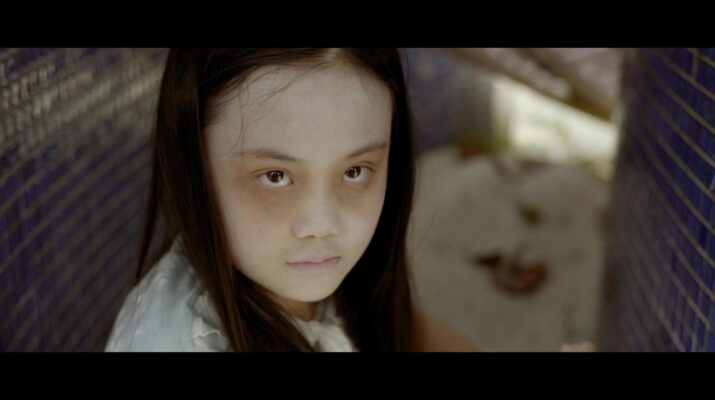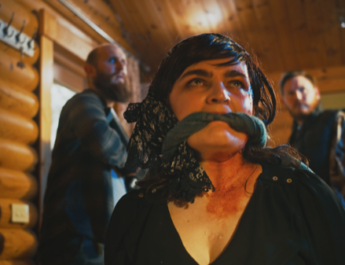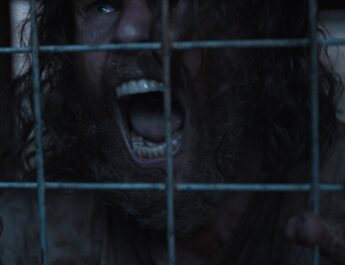From directors Goh Ming Siu and Scott C.Hillyard, the provocative horror-thriller fixes on 50-year-old Jim who has constructed a perfect life in the world’s most expensive city. When he is unexpectedly laid off, he desperately clings onto the symbols of his success, while wrestling with resurfacing demons from his past.
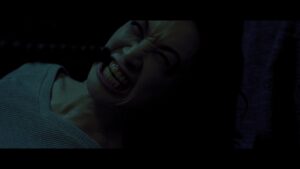
-PH: What part of the country do you call home? And is that where you try and work, for the most part?
Scott: Singapore is a really tiny country, so essentially everywhere is the same. But if I get an opportunity to work overseas, I would take it. We’re both born and raised in Singapore, and live and work here.
Ming Siu: Although I did go to film school in the US, but that was just for a few years.
PH: Was the goal always to get into the film biz or did you start out doing something else?
Ming Siu: I was a theatre nerd in high school, and was hoping to do that, but everything changed when I took my first film class in college. And while we have managed to make our first feature, I don’t think we’re really “in” the film biz yet, seeing as how we’re indie and so new to the international scene.
Scott: When I acted in a local production for the first time, as a kid, I kind of knew that I would somehow always be involved in the industry, but never really thought of it being the film biz. Since most of the local productions in Singapore are TV series.
-PH: Tell us about the incentive for doing this one?
Scott: Making something that you want to say is quite the incentive, don’t you think? Or do you mean financial incentive? Of course we hope it will be profitable, but we know it’s very difficult for unknown filmmakers.
Ming Siu: But as for why we wanted to make this film, well, we’d been talking about making a film together for a while at that point in time. We thought of making a short, but having made a fair bit of TV in Singapore, I thought a short wouldn’t be challenging enough. Why not a feature? How hard could it be? And now we know that it’s SO much harder…
Scott: We wanted to make a relatable film, so we began by asking ourselves, “What scares you the most?” And we realised that our answers weren’t necessarily the supernatural, ghosts, spirits, and so on. It was real life, where the stakes can be tremendously high. Then it became clear to us that Repossession had to be grounded in reality, even the horror needed to be. For our exorcism scene, we actually consulted someone who’d done that work before, for authenticity.
Ming Siu: When you tether these otherworldly encounters to characters who are three-dimensional and real, the stakes become that much higher, and juxtaposition of the two worlds creates a very interesting tension. And we’ve found out from audiences that the groundedness makes our film very relatable – painfully so at times.
-PH: They don’t make movies like these anymore do they? It’s a throwback to the classy genre films of the ‘70s almost!
Scott: Thank you! I probably have an old soul or something; I do enjoy those films, and while we didn’t set out to copy anything, the DNA of those films probably slipped in. I like that those films were intelligent and made you look at things in a different light.
Ming Siu: And I went to film school so I love the classics, not just of the 70s and American, but world cinema like Kurosawa and Ozu too. There’s a lot you can learn through osmosis just by watching their work.
Scott: The best genre films of that era worked on a deeper level, and really got under your skin and stuck with you for a long time. That’s what we were aiming for as well, because we wanted to challenge ourselves.
Ming Siu: And like those films, we were also working with limitations. Advanced CGI technology didn’t exist then, and it’s out of our financial reach now, so we couldn’t have flashy VFX, only relatively simple enhancements of what we shot in-camera.
Scott: Another thing about films of that era was the ambiguity in many of them. Having that ambiguity for us was also important. On the one hand, we’re adamant on grounding everything, including the horror, in reality. But at the same time, we’re also trying to say that not everything that happens needs to have a reason.
Ming Siu: Life isn’t so neat and tidy. It’s innately human to desire answers, but there’s often no clear answer to be found in life. Sometimes it seems that people go overboard in demanding answers, with articles and videos explaining What Really Happened in Pan’s Labyrinth or Does the Spinning Top Fall in Inception. Perhaps it’s a symptom of consuming only a certain kind of media diet?
Scott: We prefer to lay out evidence for the audience, nudge them towards making the connections, and leave the rest of the interpretation up to them, instead of spoonfeeding them. And some people love that sort of thing, while others get angry…
-PH: Did you sit down with the classics and rewatch them before the shoot?
Scott: Maybe not in the way you’d imagine. We wanted to draw inspiration from the films we liked, but not copy them slavishly in any way. So the watching of films was done earlier on in the creative process, and not during pre-production. By pre-production, we were already very clear on our vision for the film.
Ming Siu: We were inspired by different aspects of various films. For example, the handheld cinematography of European arthouse films, the social realism of Ken Loach, the mood and tone of Kiyoshi Kurosawa, the compositions of Edward Yang and Wong Kar-Wai, where the framing of the shot enhances the thematic elements.
Scott: We also love the oppressive mood of The Blackcoat’s Daughter by Oz Perkins, and the way the supernatural is handled in that film. And of course, the bold structure of Audition, with its abrupt midpoint tonal shift. That was a key inspiration for our structure.
Ming Siu: So as you can see, our inspirations were very broad, not just from within genre film, and they’re from different eras too. Although all art builds on what came before, so I’m sure many of these filmmakers have firm foundations in the classics as well.
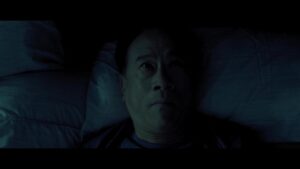
-PH: Has it been a door-opener?
Scott: Yes and no? It’s opened some doors, like finding some festivals and audiences that have been really supportive, but we learned a lot of lessons from the doors that shut as well. It definitely isn’t a doors wide open situation. One thing we found out was that we’d made a polarizing, divisive film without setting out to do so. We’ve had audience walkouts, but we’ve also had Q&As with intelligent, incisive questions that showed that those who had connected with the film had thought deeply about it. That was very gratifying.
Ming Siu: The thing is, we don’t handhold, and audiences have to infer and read between the lines. Some of the context isn’t explained, and is conveyed more through mood and character behavior. In an Asian society, people react and behave differently; there’s a lot less free expression of emotions and a lot more self-repression. Our main character, being of an older generation, only knows how to operate in that particular mode.
One of the comments we’ve gotten from audiences is that he isn’t an active protagonist, but that definition of “active” is from a conventional Hollywood perspective. From an Asian perspective, he’s tremendously active, trying and trying his best, but his problem is that he can’t escape the invisible restraints in his mind.
Scott: And some people love the restrained, subtle acting, while others call it “wooden”. We’ve won awards at prominent festivals for our writing and direction, but conversely, others have slammed the exact same things. So the response really depends on the individual viewer and how open they are to different filmic experiences. Many of our strongest supporters are in the US, so we hope that there are many like-minded individuals out there who will give our film a chance.
Ming Siu: The one thing nobody seems to have a problem with is music. So props to our composer Teo Wei Yong! He’s won the Chinese cinema equivalent of an Oscar, a Golden Horse Award, for the 2018 film A Land Imagined.
Scott: Maybe some sharp-eyed viewers will catch some faces they recognize too. Amy J Cheng, our female lead, was in Crazy Rich Asians. And Lim Kay Siu who appears in a few scenes in our film is playing Gyatso in the upcoming Avatar: The Last Airbender series from Netflix.
-PH: Being a horror buff, we have to ask – what’s a horror film that audiences should check out, be it a forgotten gem or something new.
Scott: The Blackcoat’s Daughter (2015) by Oz Perkins, son of Anthony Perkins. Totally underrated, masterful control, haunting oppression, magnificent performance from Kiernan Shipka. Minimal VFX, but it sticks with you for a long time. And perhaps The Last Exorcism (2010) by Daniel Stamm? This film definitely terrified me.
Ming Siu: For those not very familiar with Asian film, A Tale of Two Sisters (2003) from South Korea is an absolute knockout white-knuckle horror. And Takashi Miike’s Box (2004), a short film that’s part of horror anthology Three… Extremes is a real freaky, creepy mindfuck.
REPOSSESION is now available on digital from Kamikaze Dogfight and Gravitas Ventures

